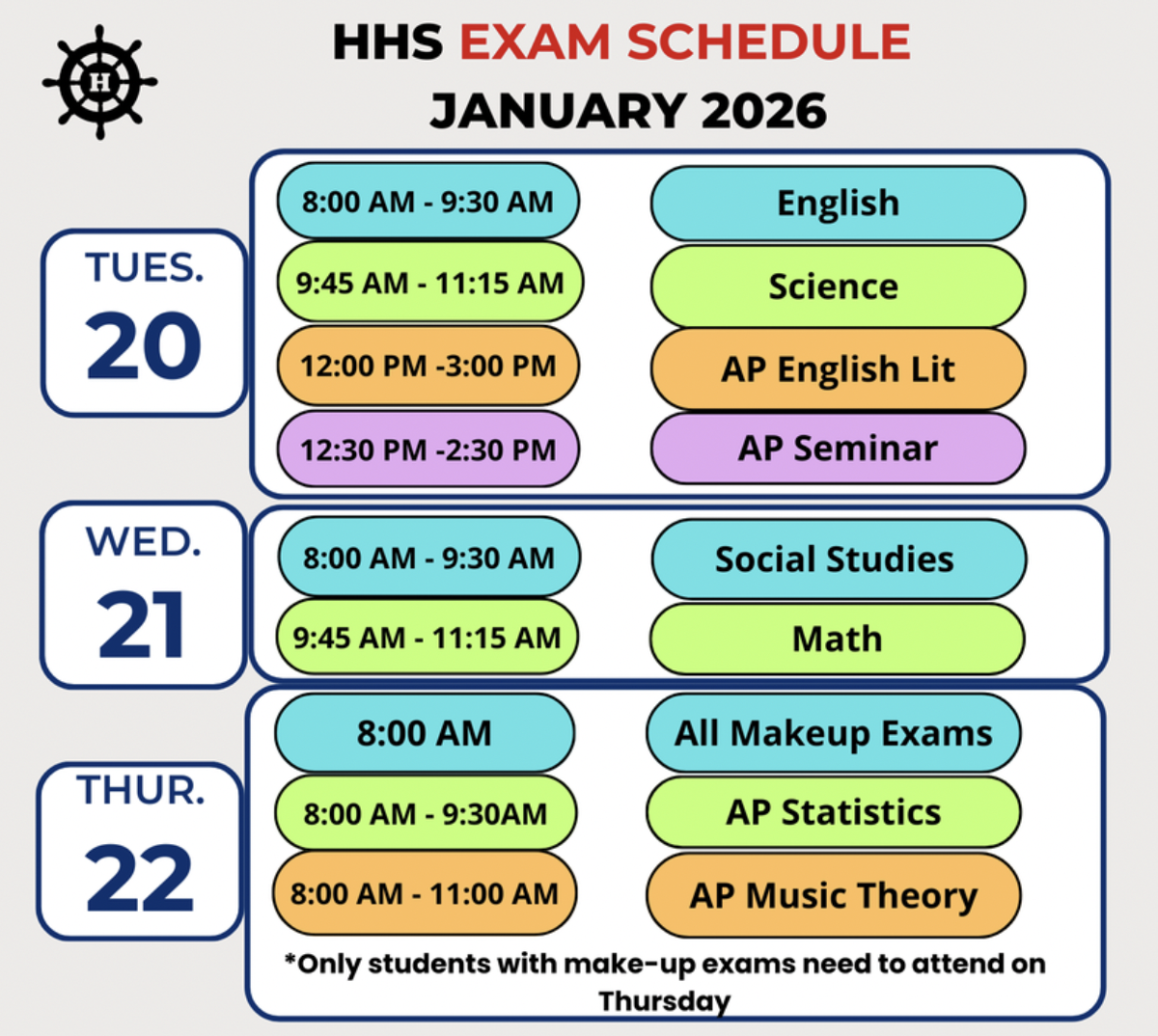If you ask almost any student at HHS about MCAS testing, you almost never hear someone say, “I love MCAS!” Two weeks ago, the sophomore class at HHS began MCAS testing with the English Language Arts MCAS exam. State and standardized testing has been a polarizing issue since its emergence in public education. Many students, teachers, and administrators have very different views on MCAS testing as there is some questioning on the effectiveness of the test overall.
According to our school report card, Hingham High School as an individual school performs exceptionally well compared to the rest of the state with 89% of students either meeting or exceeding expectations compared to the 58% of the state in total (from 2023 testing data).
Although HHS does extremely well on this test, the majority of the students do not appreciate the stressful testing days that add to the workload they are already dealing with. Many see this test as “useless” and just a “burden” even though the results allow the school to see how it is performing as a whole. While standardized testing is not fun, there is no denying the benefits of the data it provides. This data can help the school see how their teaching methods
But, it is difficult for students to see these benefits to taking a two to three hour test two to four days a year. Sophomore Gabby Ferrara who recently took the ELA MCAS two weeks ago is one of these students who when asked about her opinions, responded by saying, “I personally think we should not have to do MCAS testing because it is unnecessarily long and takes too much time and energy away from the school day.”
This opinion seems popular among almost all HHS students as freshman Izzie Donnelly thinks that, “Since we have been taking the test for so long, it is really just another routine standardized test that we have to take. I do not really think the benefits of knowing the scores for the tests outweighs the annoyance of taking the test.”
Yes, there may be some bias in these answers because students often only see the drawbacks to a grueling three hour test, but it is important to see the student perspective on MCAS because after all, they are the ones taking it.
Recently, a new civics MCAS has been released and is being introduced to Hingham Middle School this year. It too has received mixed reviews as many do not want to add yet another test to their already full plate. However, some people are pushing for this test as it is used in a newer way to test historical skills and assure that students are aware of how their own government works.
World history teacher at HHS and head of the history department Mr. Hoey has “mixed feelings” on this new test. He explains, “on the one hand, the unfortunate reality is that having an MCAS in your discipline guarantees that you will get time and resources allocated to your discipline.” In other words, having this MCAS evaluation will guarantee that the program will improve over the years and become more tailored to students needs.
He continues, “I am not opposed to an MCAS in isolation for history, if it is a good test that is not just random, trivia-like questions. From what I’ve seen in the civics test, it is much more skill and application based, which I think is good,” addressing the concerns that many may have that the test will just be spitting out random historical knowledge, which makes it an unnecessary evaluation. Hoey concludes, “however I am concerned at the amount of time that MCAS tests take in the aggregate,” voicing the concerns of many about the controversial MCAS test.
Overall, MCAS has received mixed opinions between students, teachers, and administrators. Even if taking these types of standardized tests plagues students with unnecessary stress, they are important in understanding the effectiveness of teaching and the growth of students at HHS and other schools in the state.


































